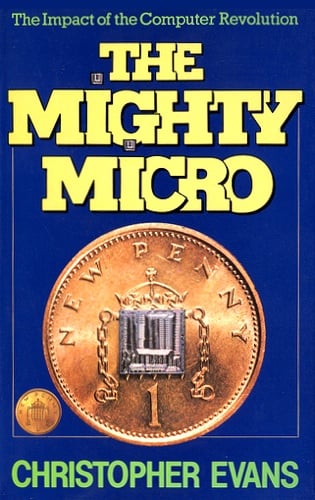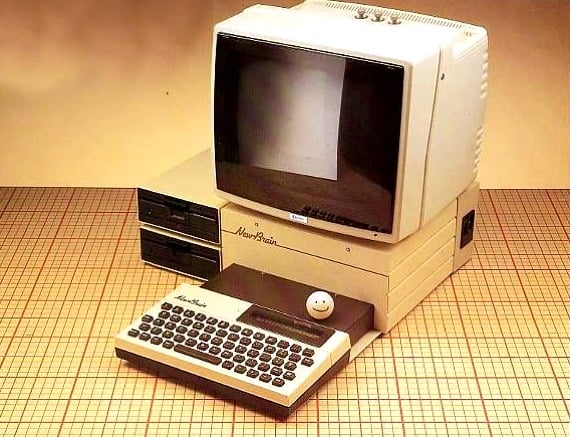This article is more than 1 year old
The Grundy NewBrain is 30
The revolutionary product that came too late
The BBC Factor
As magazine Your Computer noted at the time of the sale to Grundy: "When the plans for the NewBrain were first announced, it sounded both novel and competitive, but the endless delays in its development mean that it has now lagged behind a new generation of personal computers. It is now almost certain that the NewBrain will never repay its development costs."
Part of those costs involved pitching the NewBrain to the BBC as the basis for the Corporation's own-brand microcomputer.

In 1979, ITV produced a documentary based on Christopher Evans' book The Mighty Micro, itself inspired by the microcomputer revolution taking place in the US. The BBC produced a similar programme, The Silicon Factor, later that year.
The Corporation then commissioned a ten-part series entitled Hands on Micros. Scheduled to be broadcast in October 1981, the show would would introduce viewers to the computer and help get them using one. It would form the basis of what would become known as the BBC Computer Literacy Project, devised by The Silicon Factor Producer David Allen.
Early in 1980, Allen and his team decided that the Computer Literacy Project and the TV series that Hands on Micros needed a machine which the public could buy and use to gain real experience of what was being discussed in each episode. Only that way would the audience truly engage with the new technology and the goals of the Computer Literacy Project - no less than a mass education of Britons to IT - be realised.
Acorn 1, Grundy 0
The Basic language was the obvious starting point, but with no 'standard' dialect available, it was decided the BBC should devise and promote one of its own, using the BBC brand as a stamp of authority.
Meetings held by the BBC with the Department of Trade and Industry led the Corporation's team to the NEB and then to Newbury Labs. The result, it has been claimed, is that the BBC selected the NewBrain to be the BBC Micro but dropped it when it became clear the machine would not be ready for the proposed October 1981 broadcast of Hands on Micros.
The NewBrain was well-placed to become the BBC Micro, having been first promoted early in 1980, while planning work on Hands on Micros was under way. But if the NewBrain's unsuitability was to force the BBC to look elsewhere, it happened very early on. BBC documentation shows Acorn's Atom follow-up, the Proton, had been chosen to be the BBC Micro by February 1981, long before Hands on Micros' scheduled appearance.

A variety of add-on units were promised
There is no specific evidence to suggest the BBC selected the NewBrain and then dropped it. Quite the reverse: the NewBrain's spec needed to be changed to meet the BBC's requirements. The hardware had to be tweaked. It seems likely it was this effort that stopped Newbury bringing the NewBrain M, MB and MBS to market in 1980 and perhaps even 1981.
Newbury's sale of the NewBrain to Grundy on September 1981 suggests that it was indeed unable to bring the machine to market, and that fresh minds - and more money - would be required to do so.
Grundy had both, and was able to finalise the development and begin manufacturing the machine. At long, long last, the NewBrain was launched, in July 1982.
